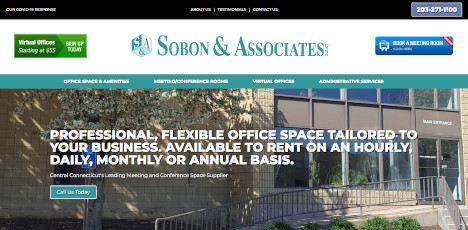
Selecting a Capable Website Host for Your Application
In the ever-evolving world of web development, picking the right website host can make or break your online existence. While many aspects come into play when picking a hosting supplier, one crucial aspect that often goes neglected is guaranteeing that the host can support your website's architecture. Neglecting this critical consideration can lead to performance issues, security vulnerabilities, and eventually, a subpar user experience.
Your site's architecture describes the underlying structure, technologies, and structures utilized to construct and deploy your web application. It encompasses whatever from the shows languages and databases to the server setups and deployment approaches. Failing to align your website host environment with your website's architectural requirements can result in compatibility issues, resource restraints, and a host of other problems that can badly impact your website's performance and scalability.
To guarantee a seamless and effective hosting experience, it's essential to comprehend your site's architecture and evaluate whether a possible host can accommodate its particular requirements.
Different hosting providers use differing levels of support for various programming languages and frameworks. If your website is developed using a particular language or structure, such as PHP, Python, Ruby on Rails, or Node.js, you'll need to guarantee that the host provides the necessary runtime environments, libraries, and dependencies required for your application to function correctly.
Lots of contemporary web applications depend on databases to store and retrieve data. Whether you're using a relational database like MySQL or PostgreSQL, or a NoSQL option like MongoDB or Cassandra, your hosting service provider should support the particular database management system (DBMS) your application needs. Furthermore, consider the scalability and performance capabilities of the host's database offerings to ensure they can manage your application's growth and traffic demands.
Your website's architecture may have specific server setup requirements, such as Apache or Nginx web servers, load balancing, caching systems, or specific software application versions.
Make sure that your website host supplier can accommodate these requirements and supply the necessary control and versatility to tweak the server settings as needed. Depending on your development workflow and deployment method, you might require particular hosting features. For example, if you follow a continuous integration and continuous implementation (CI/CD) approach, you'll require a hosting environment that supports automated release tools and processes. Similarly, if you're using containerization technologies like Docker, your website host should provide container-based hosting solutions.
As your site grows and brings in more traffic, its resource demands will increase. Assess the scalability alternatives provided by possible hosts, such as vertical scaling (upgrading hardware resources) or horizontal scaling (including more servers). Furthermore, consider performance-enhancing functions like material delivery networks (CDNs), caching mechanisms, and load balancing abilities to ensure your website can manage spikes in traffic without compromising user experience.

Depending on your site's function and the data it manages, you might have particular security and compliance requirements.
Evaluate the host's security measures, such as firewalls, SSL/TLS file encryption, regular backups, and disaster healing plans. If your site runs in controlled industries or deals with delicate information, make sure that the host abides by appropriate security standards and regulations.
When dealing with complicated website architectures, having access to educated assistance and detailed documentation can be vital. Assess the host's support channels, response times, and the accessibility of resources like knowledge bases, tutorials, and designer neighborhoods. A host with strong assistance and paperwork can assist you repair issues and enhance your website's performance more effectively.
Performing comprehensive research study and comprehending your website's architectural requirements is crucial when selecting a hosting company. Do not undervalue the prospective impact of an incompatible or insufficient hosting environment on your website's efficiency, scalability, and overall user experience. Think about talking to knowledgeable web developers or hosting professionals to acquire insights into your specific requirements and guarantee you make a notified choice.
While the right hosting service may come at a higher cost, the investment is well worth it in terms of the long-term success and stability of your online presence.
Remember, your website's architecture is the foundation upon which your digital presence is constructed. Guaranteeing compatibility with your website host is akin to constructing a strong and trustworthy structure for your online ventures. By making the effort to assess and align your hosting requirements with your site's architecture, you'll be well-positioned to provide a smooth, protected, and high-performing experience to your users, ultimately adding to the success of your online venture.







